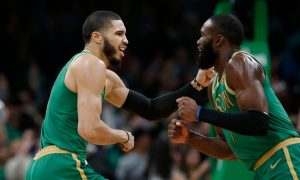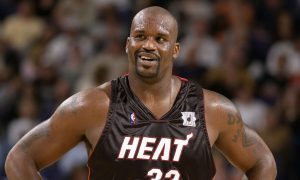Less than a week into the season and Sacramento Kings personnel decisions are already being dictated, in part, by injuries, and the results have left much to be desired. While they’ve been largely or even completely without key players, solutions to the Kings’ problems may be had with a little reshuffling.
Patrick Patterson has underwhelmed, starting in Carl Landry’s absence. He’s had little impact on Sacramento’s first few games and even been a detriment at times. Meanwhile, with Luc Richard Mbah a Moute recovering from a preseason injury, John Salmons and Travis Outlaw have claimed the lion’s share of the minutes at small forward.
The lack of production from Patterson comes as a bit of a surprise while Salmons and Outlaw contribute inconsistently, as projected; whatever the expectations, the trio’s results have been the same: mediocre.
There’s no D-League call-up or free agent waiting in the wings to fill in at either position, but perhaps the Kings have the answer within their own roster, as is.
Small ball. Kind of.
One of the most intriguing and effective lineups Sacramento has used in its first four games got rid of forwards altogether and featured three guards. It was a brief appearance, but one that helped seal the game against the Denver Nuggets nonetheless.
For about four minutes in the final quarter of the home opener, Michael Malone threw out a lineup that consisted of Isaiah Thomas, Greivis Vasquez, Ben McLemore, Chuck Hayes and DeMarcus Cousins – the last of whom is the only one listed over 6-foot-6.
Before the season started, much was made about who would start between Thomas and Vasquez. Their play in those four minutes or so is one of the reasons such concerns have died down considerably, as the two have been a dangerous combination since.
The lineup is potent and proved to be as much last Wednesday night. In their short time together on the floor, the five players combined to score 11 points, shoot over 57 percent from the field and outscore their opponents by five points – all crucial in quelling a potential late-game comeback by the Nuggets.
Maybe the Kings’ power forwards will turn it around as the season progresses, but until then the team’s strength lies largely in its backcourt. Sure, Cousins is Sacramento’s most talented player, but after him the frontcourt is lacking.
A lineup sporting three guards accomplishes a number of things. It decongests the Kings’ overcrowded backcourt that hosts more skilled guards than can see the floor over the course of a game. More significantly, it poses an offensive potency opponents would have difficulty suppressing.
Imagine Isaiah running rampant in the halfcourt or open floor (easy, I’m sure) with the ability to run the pick and roll looking to score, or to have Vasquez run it looking to distribute; Cousins could be used as the roll man in those situations or simply post up if an opportunity presents itself. With those three drawing a sizeable amount of the defense’s attention, McLemore or Marcus Thornton could be free to sneak along the perimeter, ready to launch a three or cut to the basket.
It was just four minutes against the Nuggets, but all of these options were available to the Kings with a similar lineup and yielded successful results – it sealed their only win of the season thus far.
That’s one of the problems, though, it was only four minutes. With such a small sample size, it’s difficult to accurately extrapolate much and unfair to think that such a lineup would work for longer stretches in different conditions.
Perhaps the situation lended itself to playing three guards; after all, the Nuggets played Ty Lawson, Andre Miller and either Nate Robinson or Randy Foye for a similar stretch to close the game.
The lineup would struggle against bigger competition. McLemore would be at a disadvantage against a larger small forward and Vasquez may have trouble staying in front of his man. This would put pressure on the Kings frontcourt to protect the rim, something it isn’t typically good at.
But the aforementioned small ball lineup isn’t something you’d play for long stretches of the game and allow to be overmatched by larger opponents – it’s clearly not sustainable, but it doesn’t have to be. Instead, what it provides the Kings with is an option to go to when they need some energy, some points or want to ratchet up the tempo of a game.
The past three games, after falling behind by nearly 20 points in third quarters and on the way to blowout losses, Sacramento has turned to Thomas for such a spark (and he’s delivered), but that’s hardly something you can rely on. With the Kings’ talented guards flanking him, some of the pressure to reenergize the team would be lifted from Thomas.
And the Kings have looked absolutely dismal during the middle of the last three games. A few minutes here and there of a guard-heavy, offensive-minded, active lineup might be just the thing needed to break the team out of the stupor it lets itself slip into for those long stretches.
To second-guess a new coach so early in the season often lacks prudence, and that’s not the aim. It’s hard to blame him for the effort Kings players have given over the last week. Malone’s made it clear that he teaches a different brand of basketball than what’s been played and he’s backed it up by doing things like pulling the starters in a humiliating loss against his former team.
Rather, this lineup is something that showed promise in the glimpse we had of it, and it may be a solution to the underwhelming forward play that no one predicted entering the season.
I know, it’s early, but the cards Malone has been dealt haven’t been favorable, so why not reshuffle the deck a little?

















